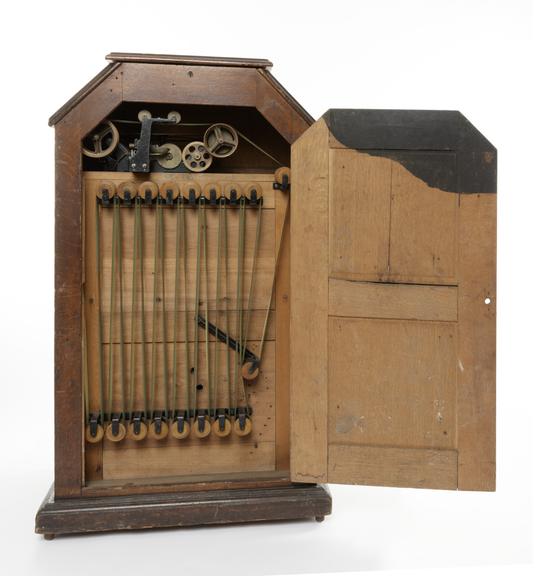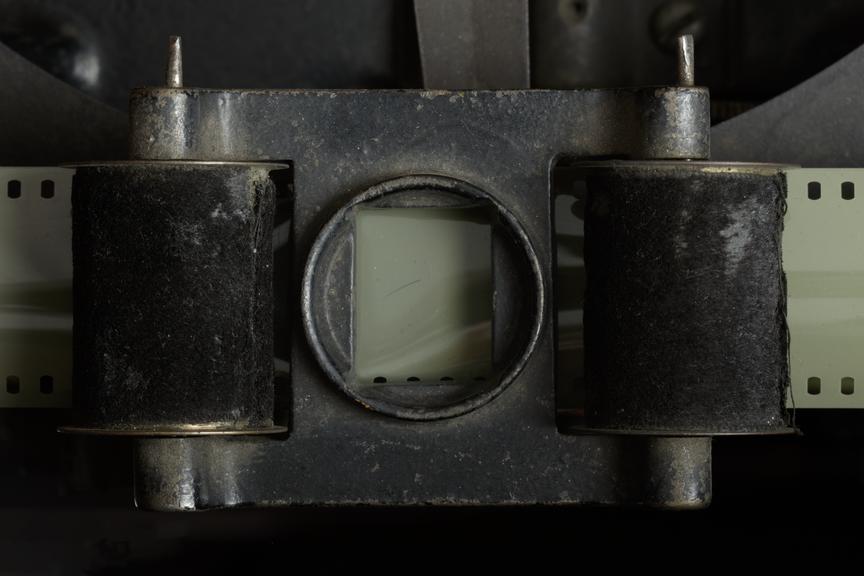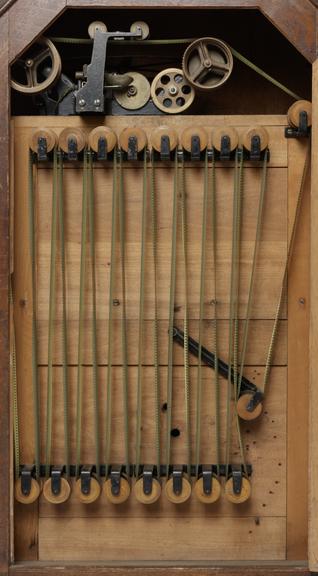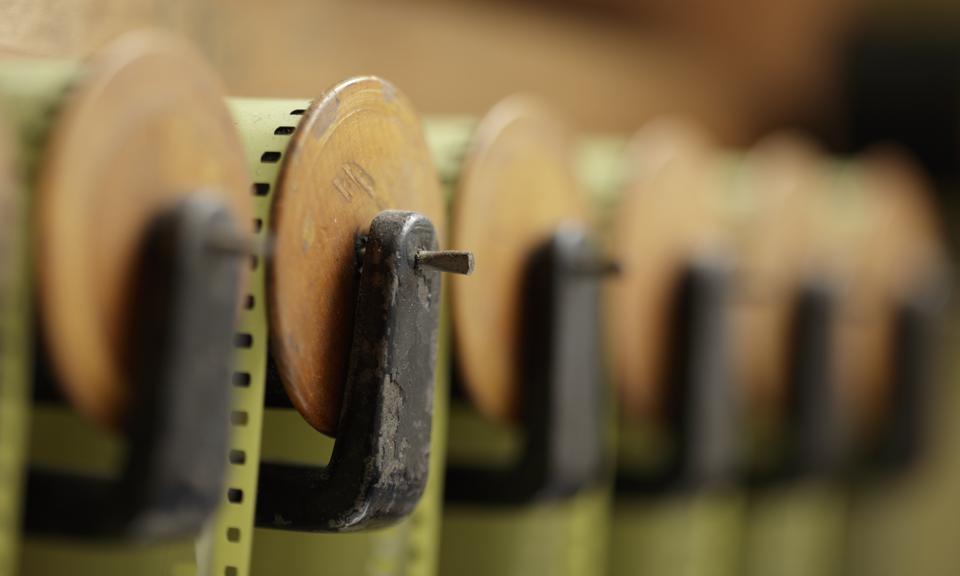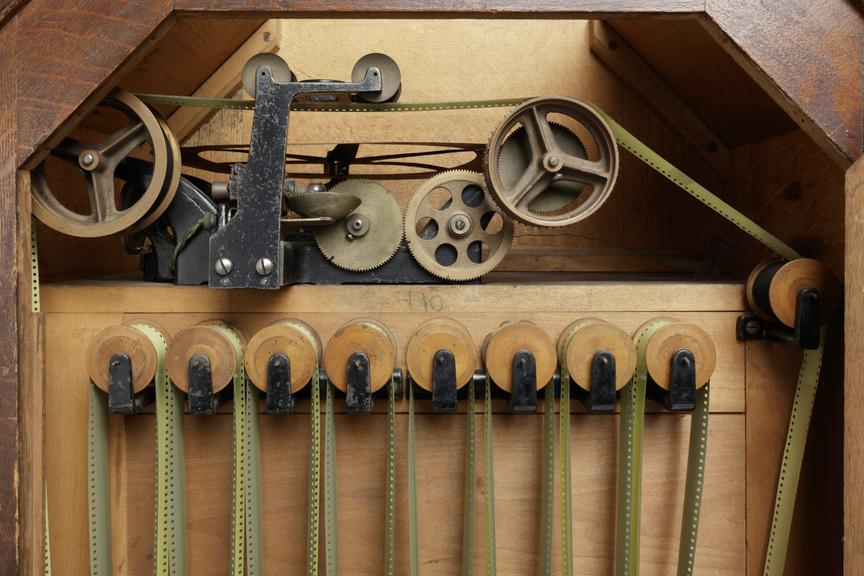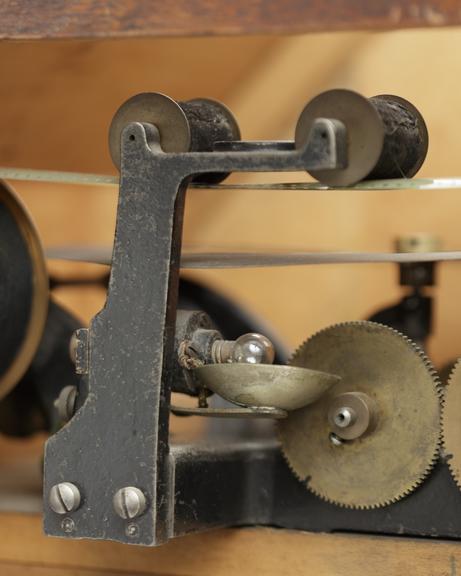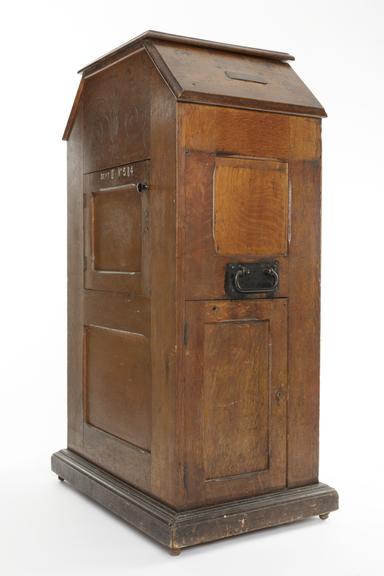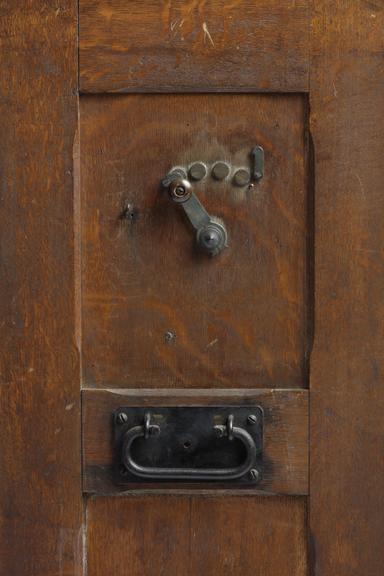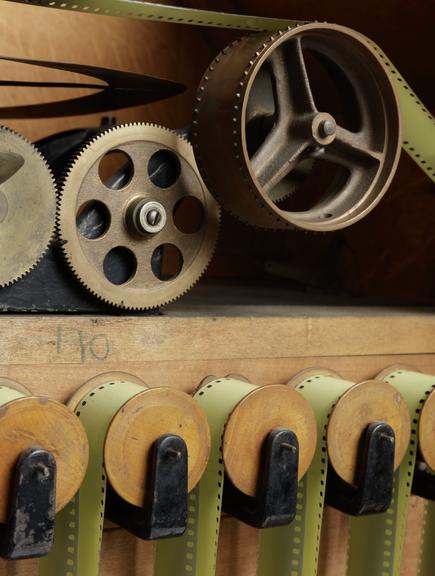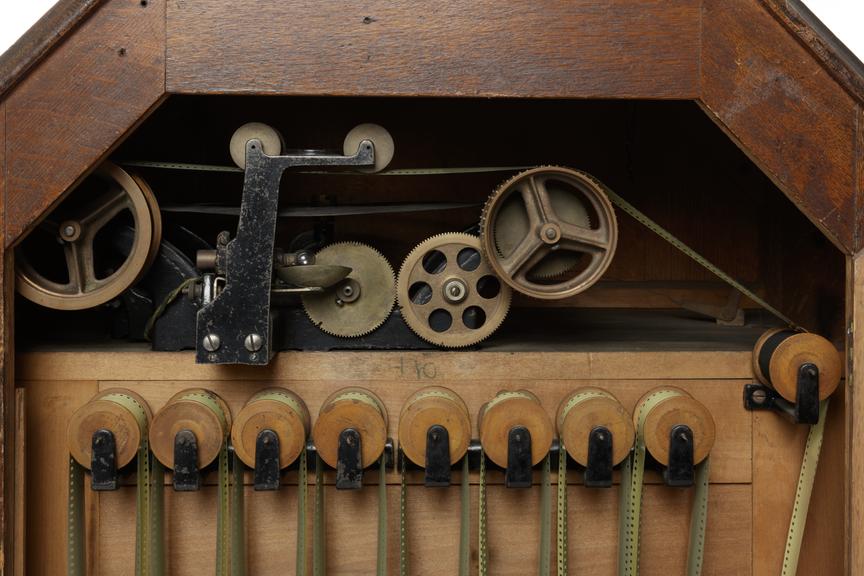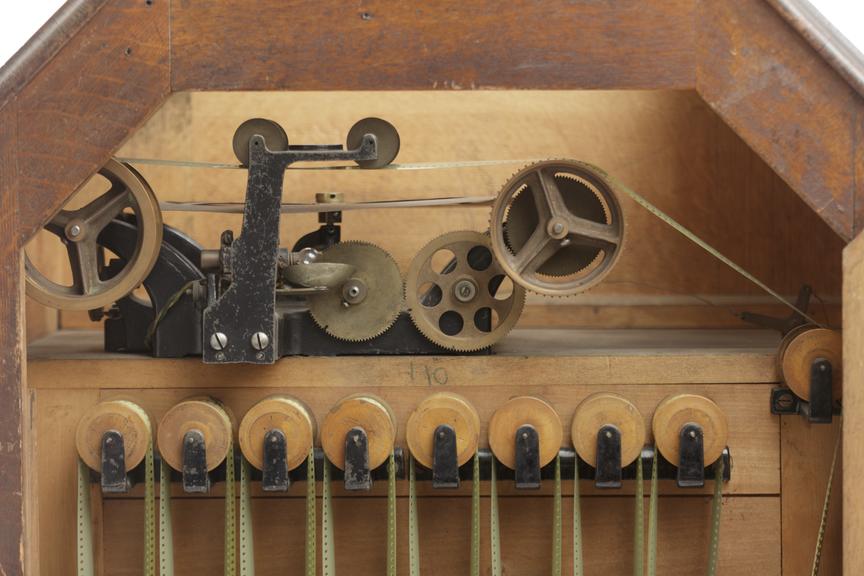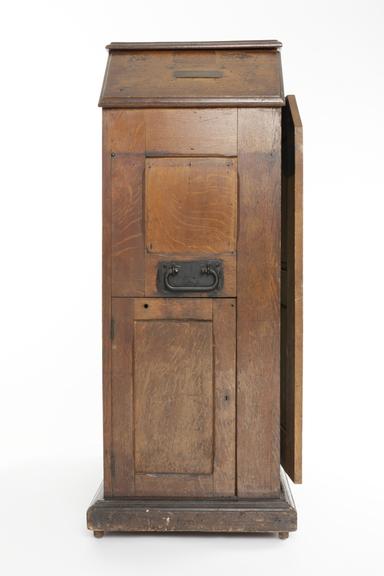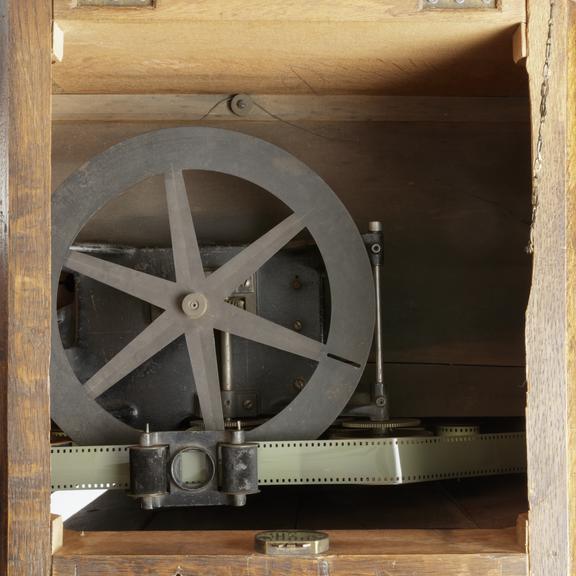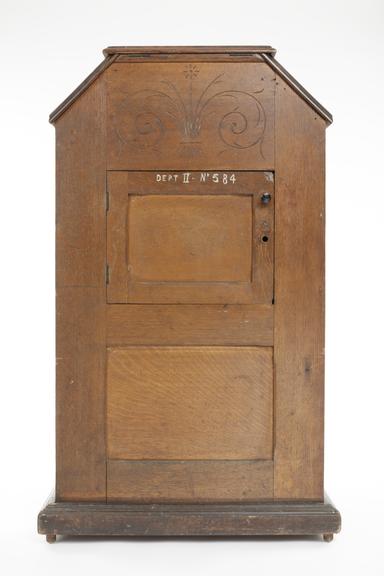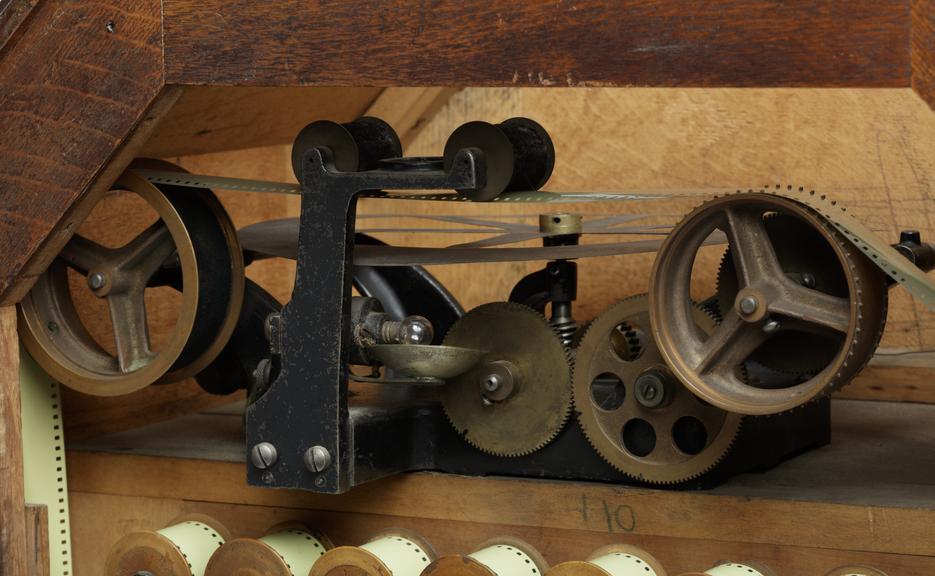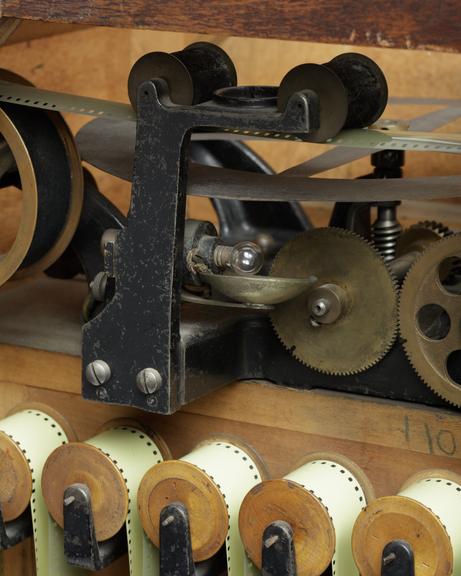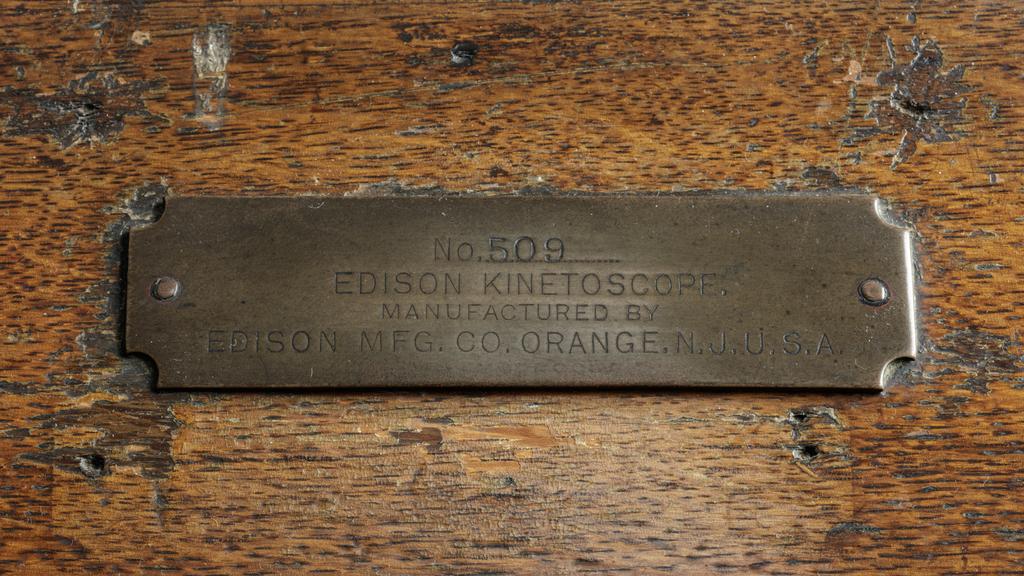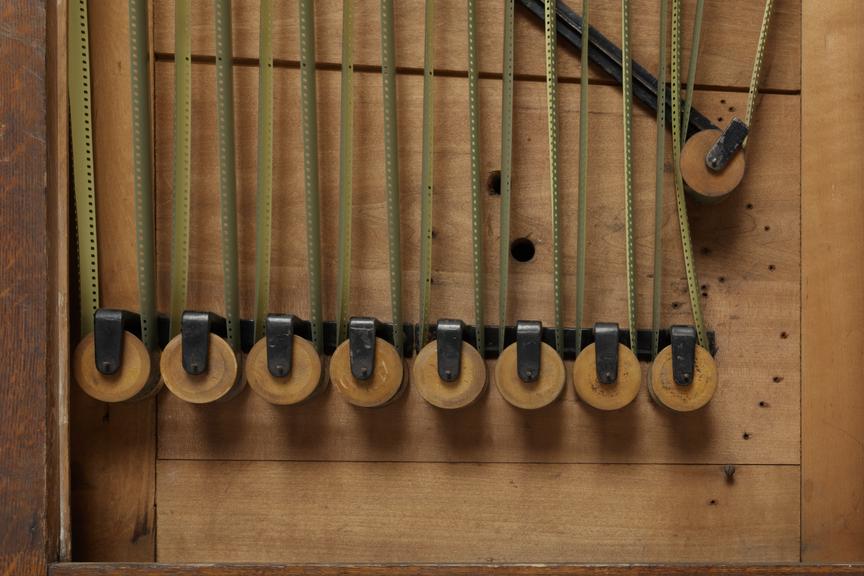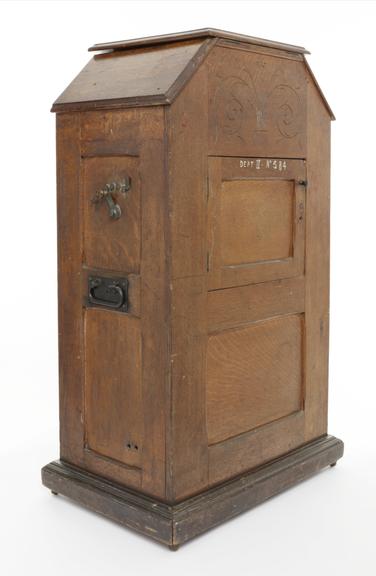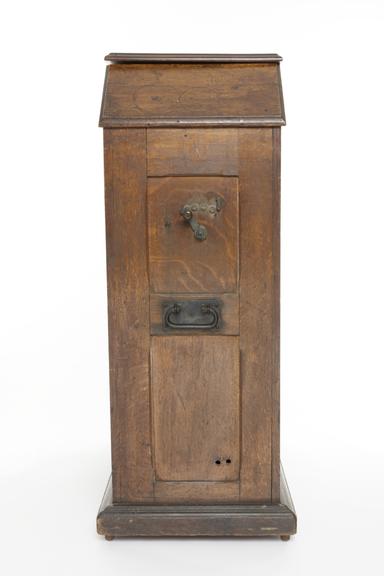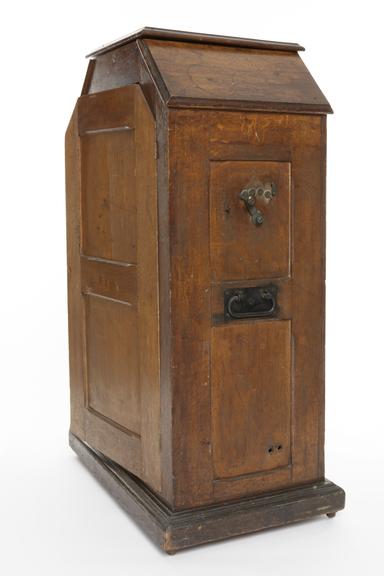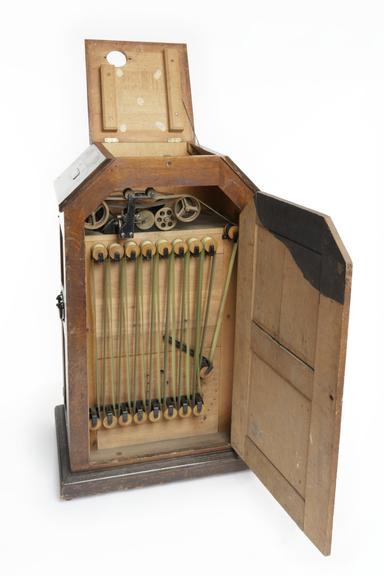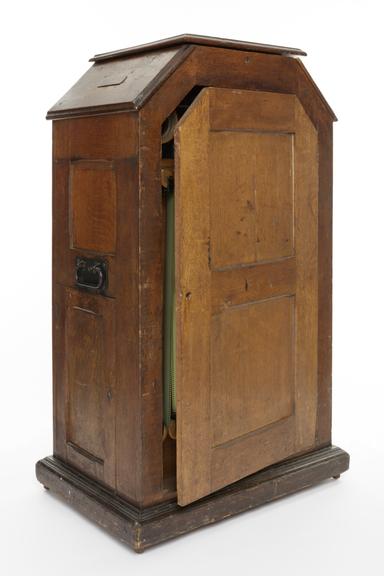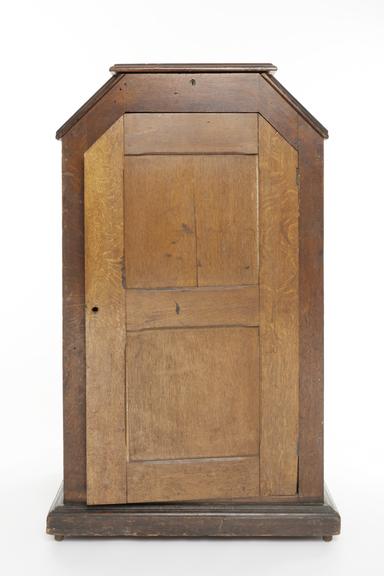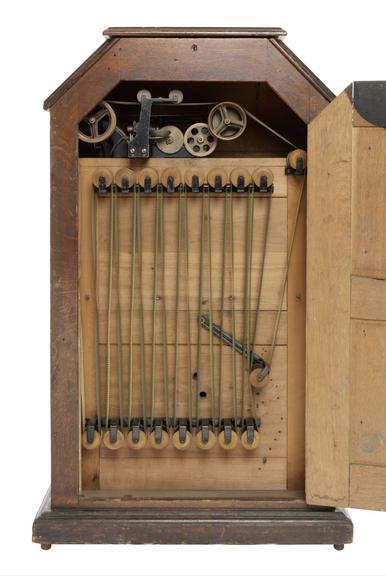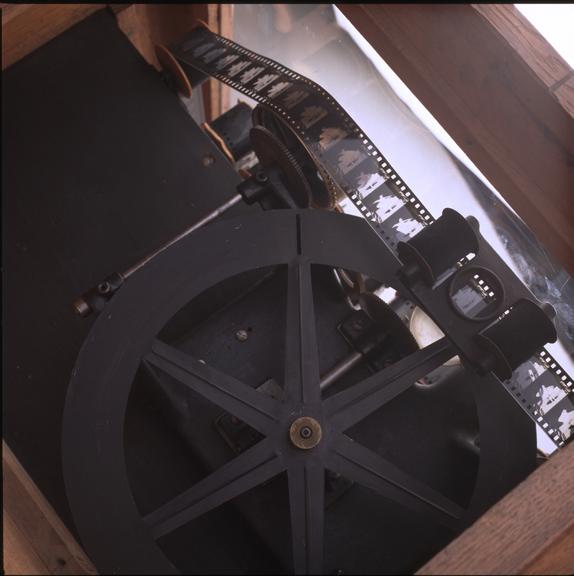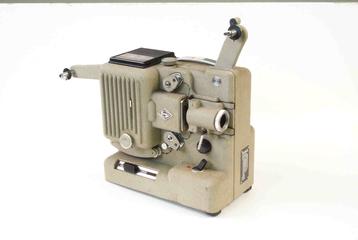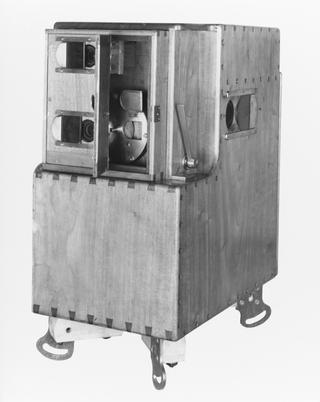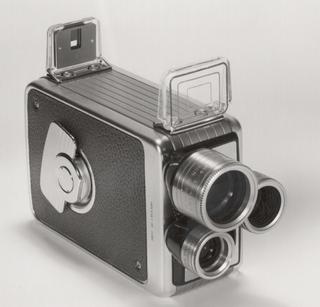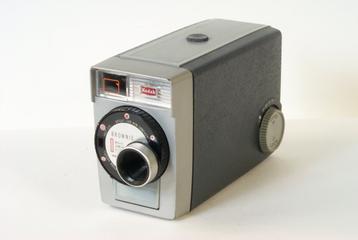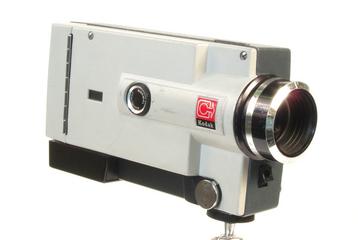Edison Kinetoscope
Main part of Edison Kinetoscope. Invented by Edison's British employee, William Kennedy Laurie Dickson (1860 - 1935), this was the first device to show moving pictures. Painted in white on left side 'Dept II No 584'. Brass plaque on upper front inscribed 'No 509 / Edison Kinetoscope / Manufactured by Edison Mfg Co Orange / NJ USA'.
More
Invented by Edison's British employee, William Kennedy Laurie Dickson, this was the first device to show moving pictures. The viewer looked through an eyepiece at the top of the machine at the film gate. The film, initially about 20 seconds in length, ran through the mechanism in a continuous loop.
Kinetoscope parlours, offering a choice of films, opened first in New York on 14 April 1894 and in London on 18 October 1894. The parlours did not survive the introduction of the cinema a year later by the Lumiere brothers in Paris. Edison coined the term 'kinetoscope' from the Greek word for movement-watcher.
- Measurements:
-
overall: 1140 mm x 465 mm x 690 mm,
- Materials:
- wood (unidentified) , brass (copper, zinc alloy) , steel (metal) , metal (unknown) , glass and cellulose acetate
- Object Number:
- 1948-277/1
- type:
- kinetoscope
- Image ©
- The Board of Trustees of the Science Museum, London
